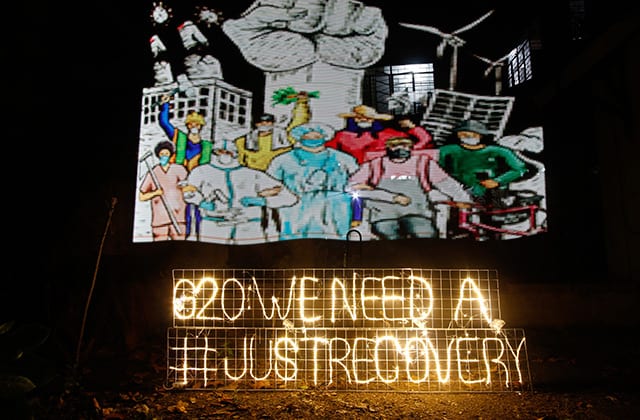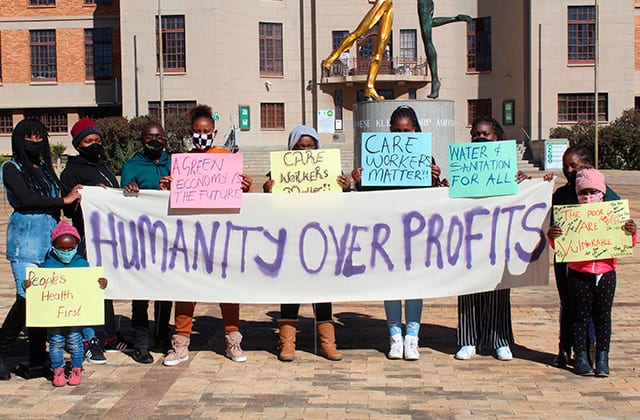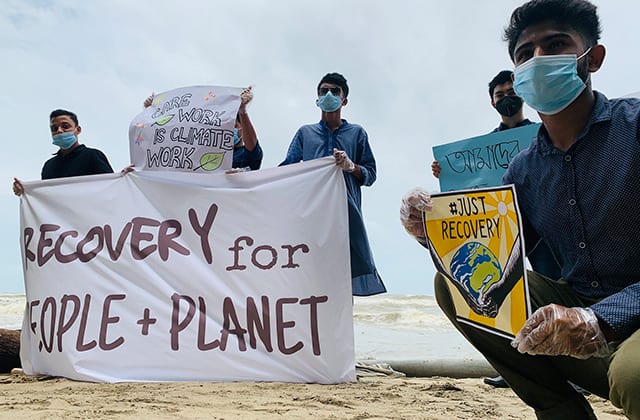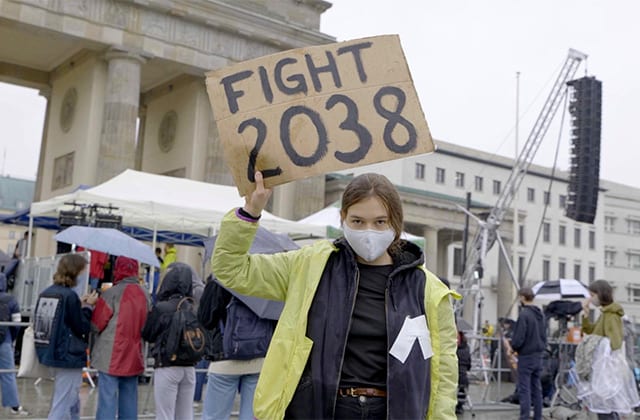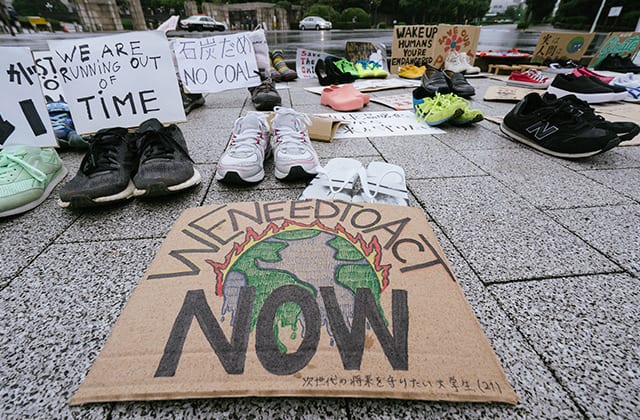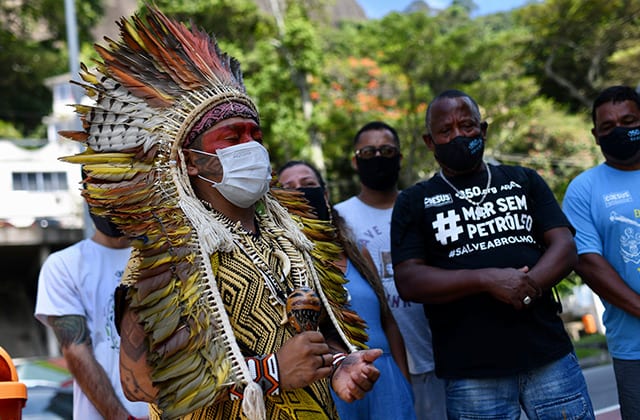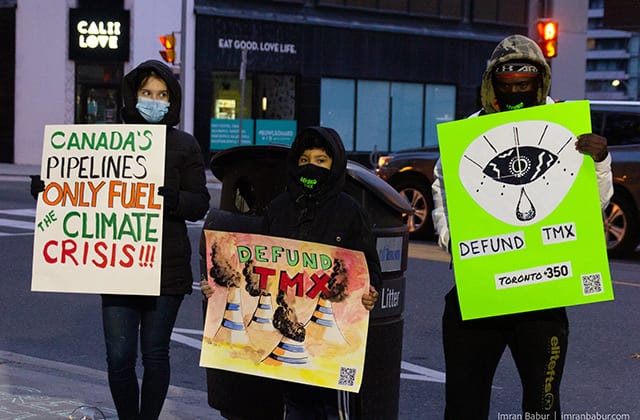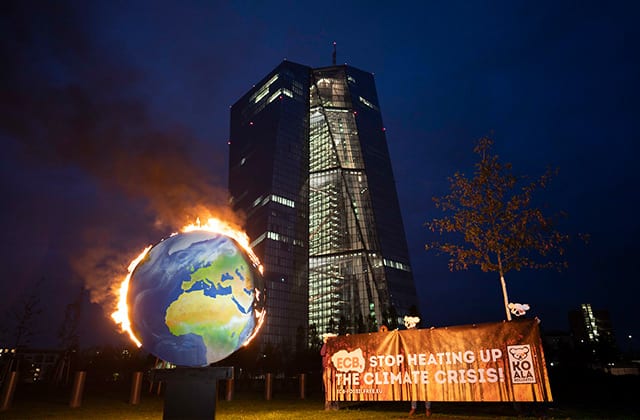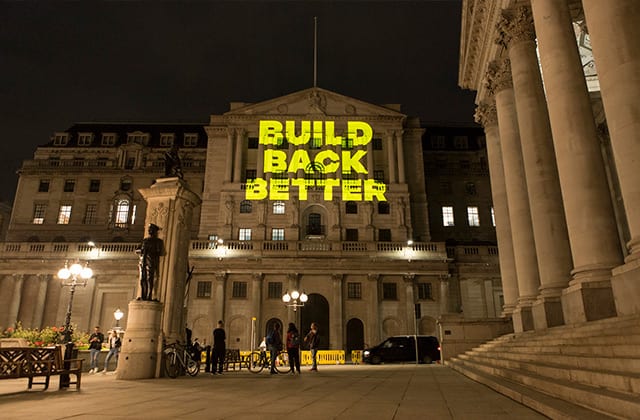350
Featured Actions + Campaigns
Investing in Youth Leadership
Photo Highlights
In 2019 we watched the Global Climate Strikes spark a massive increase in global youth activism, while in 2020 COVID-19 challenged us to reimagine how to keep this momentum going. The words remote and distanced changed our usual approach to activism, more than ever we centered safety above all else. As we watched countries enter lockdowns and restrictions, 350 quickly shifted into action by pivoting our campaigns to focus on a recovery from COVID-19. On March 18, our team released a guide to organising tools and tactics for taking online action while “flattening the curve.” With in-person gathering no longer possible in most parts of the world we provided resources and remote tools, like these Online Skill-Ups, designed for accessibility and available in multiple languages.
We also published a freely downloadable Climate Resistance Handbook, featuring a foreword by Greta Thunberg, available in English, Spanish, Dutch, Portuguese, French, Russian and Japanese. The Handbook has been downloaded 15,000 times in the last year.
April 2020 was the 50th Anniversary of Earth Day and the Climate Strikes moved online with a new slogan, #FightEveryCrisis. 350 supported a collaborative effort to produce Earth Day Live, a 3-day interactive livestream, featuring a diverse lineup of speakers and performers from all over the world, including Jane Fonda interviewing Uganda youth leader Vanessa Nakate, Reverend William Barber, Ziggy Marley, Angelique Kidjo, and dozens of global leaders, activists and cultural workers. Earth Day Live impact included:
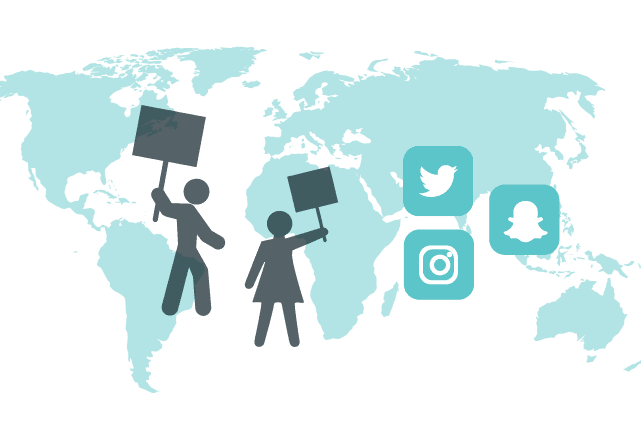
4.8 mil unique views
80+ locally-hosted live stream events
226 mil impressions on Twitter
14 mil impressions on Snapchat
321k likes on Instagram
10,000+ pledges to vote and 730 actual voter registrations
350 continued to provide opportunities and tools to build youth climate leadership, in alliance with our local affiliates around the world and local Fridays for Future (FFF) chapters, for example, Fridays for Future Japan. 350 supported FFF and other youth leaders to bring the September 2020 Climate Strikes online, centred around a dynamic group of six youth leaders from Most Affected People and Areas (MAPA). More than 4,000 events were registered around the world highlighting unique cultural strengths, traditions and acts of solidarity.
- 350 Pacific and the Pacific Climate Warriors launched a week of climate action, Matagi Malohi, meaning Strong Winds, along with a stunning short film
- In Bangladesh, women climate leaders of Satkhira led a series of actions as cyclone Amphan was flooding up to a third of the country, leaving residents stranded
- In Japan, youth organized a Shoe Strike to symbolize those not able to march for the climate in person and in the Philippines, youth strikers held a nighttime light painting protest in Quezon City
Stopping Fossil Fuel Projects Worldwide
Photo Highlights
In the early months of the pandemic, the world witnessed an unprecedented shift from fossil fuel companies and investors:
- In January, BlackRock, the world’s biggest asset manager, announced that they would divest from some coal companies that were part of their portfolio and support investors in seeking greater sustainability
- CNBC’s Jim Kramer declared that oil stocks are in “the death knell phase”
- In February, JP Morgan Chase announced a climate change policy, following BlackRock and Goldman Sachs
- BP announced plans to become a net zero company be 2050
- In April, the price of oil fell to -$38 per barrel
Later in the year, we saw carbon neutrality commitments from the world’s biggest emitter, China, and shortly thereafter, South Korea and Japan also made carbon neutrality commitments, while the Philippines declared a moratorium on new coal-fired plants. While 350 welcomes positive forward movement, net zero commitments are often based on untested technology and are set too far in the future. 350 always advocates to keep all fossil fuels in the ground and instead invest in and build infrastructure for fair, just renewable energy like solar and wind.
North America
Stopped Keystone XL from being built
On his first day as President, Joe Biden cancelled the Keystone XL permit by Executive Action, representing a massive victory in a fight that 350 and allies have waged for the last decade. In July of 2020,the U.S. Supreme Court upheld a federal court ruling that blocked a key water-crossing permit for Keystone XL. We gathered 20,000 comments, submitting them to the State Department during its comment period on a revised environmental impact statement. In addition, a Federal court sided with the Standing Rock Sioux Tribe, ordering the Dakota Access Pipeline to suspend operation, while two energy companies announced cancellation of the Atlantic Coast gas pipeline.
New York City banned all fossil fuel projects
Mayor Bill de Blasio announced in February that the City would ban all projects within and serving the city,. the largest municipal ban of its type globally. 350 has been working to press New York City and State to both divest from fossil fuels and halt all projects.
Williams fracked gas pipeline was stopped
350 and allies in the state of New York have been fighting the proposed Williams pipeline for years. While in May of 2019 the project was denied key permits, one year later in 2020, the New York Department of Environmental Conversation denied the water permits needed, killing the project once and for all.
Teck withdraws from largest-ever proposed open-pit mine
In February, Teck Resources announced it would no longer pursue this proposed mine in Canada’s tar sands region, a huge victory for Indigenous Climate Action, 350 Canada and many other partners. This campaign propelled the Our Time campaign forward in calling for a Green New Deal for Canada.
Latin America
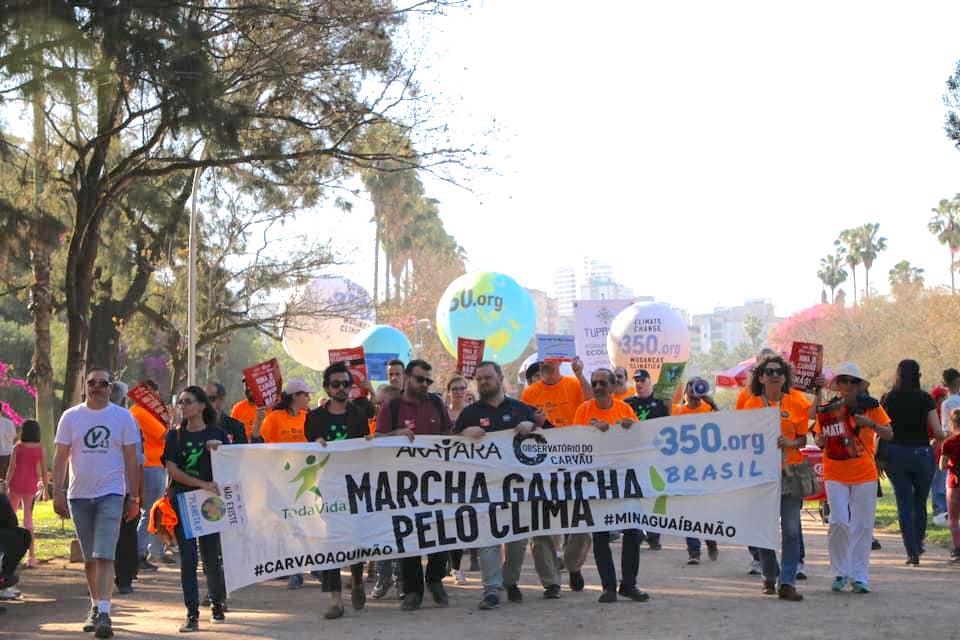
Halt to the proposed Guaíba open-pit coal mine in Brazil
This mine encountered a new roadblock when the Federal Court suspended its environmental license, a tremendous victory for the 4.5 million people living in the Porto Alegre area. This victory means that 166 million tons of coal and 4.5 gigatons of CO2 (an amount that would have been equal to 10% of global annual emissions) will stay in the ground, no longer threatening artisanal fisherfolk, farmers and Indigenous communities. People’s power won again as 350, along with partners, marched, gathered petitions and public comment, and united to put an end to this coal Goliath.
Africa
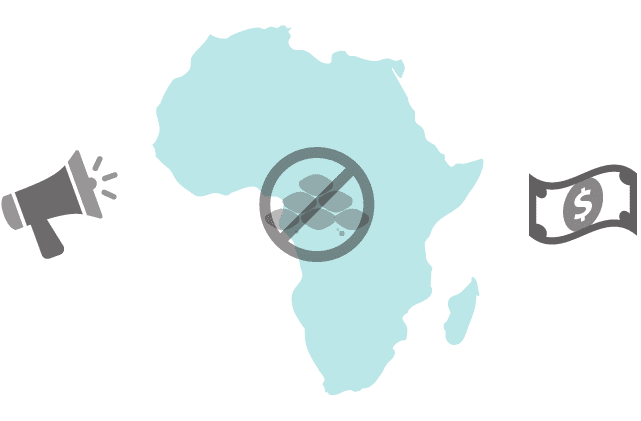
8 Years of active campaigning
981.5 Megawatt coal-fired plant – stopped!
UNESCO World Heritage Site Saved from Coal
2.5 Bil+ investments diverted
ICBC withdraws from the Lamu, Kenya proposed coal project
350 Africa and many partners including Save Lamu, have been fighting this project in a UNESCO World Heritage site, and ecologically sensitive area, for many years. Last year we reported on new road blocks for this project, but just in November we saw two key victories – GE, originally with a 20% stake in the project – declared it would not build any more new coal plants, and the Industrial and Commercial Bank of China (ICBC), which had an 80% stake, pulled out of the project. The 1,050 MW plant would have been the largest in East Africa and the first in Kenya, which boasts tremendous renewable energy capacity.
Turkey
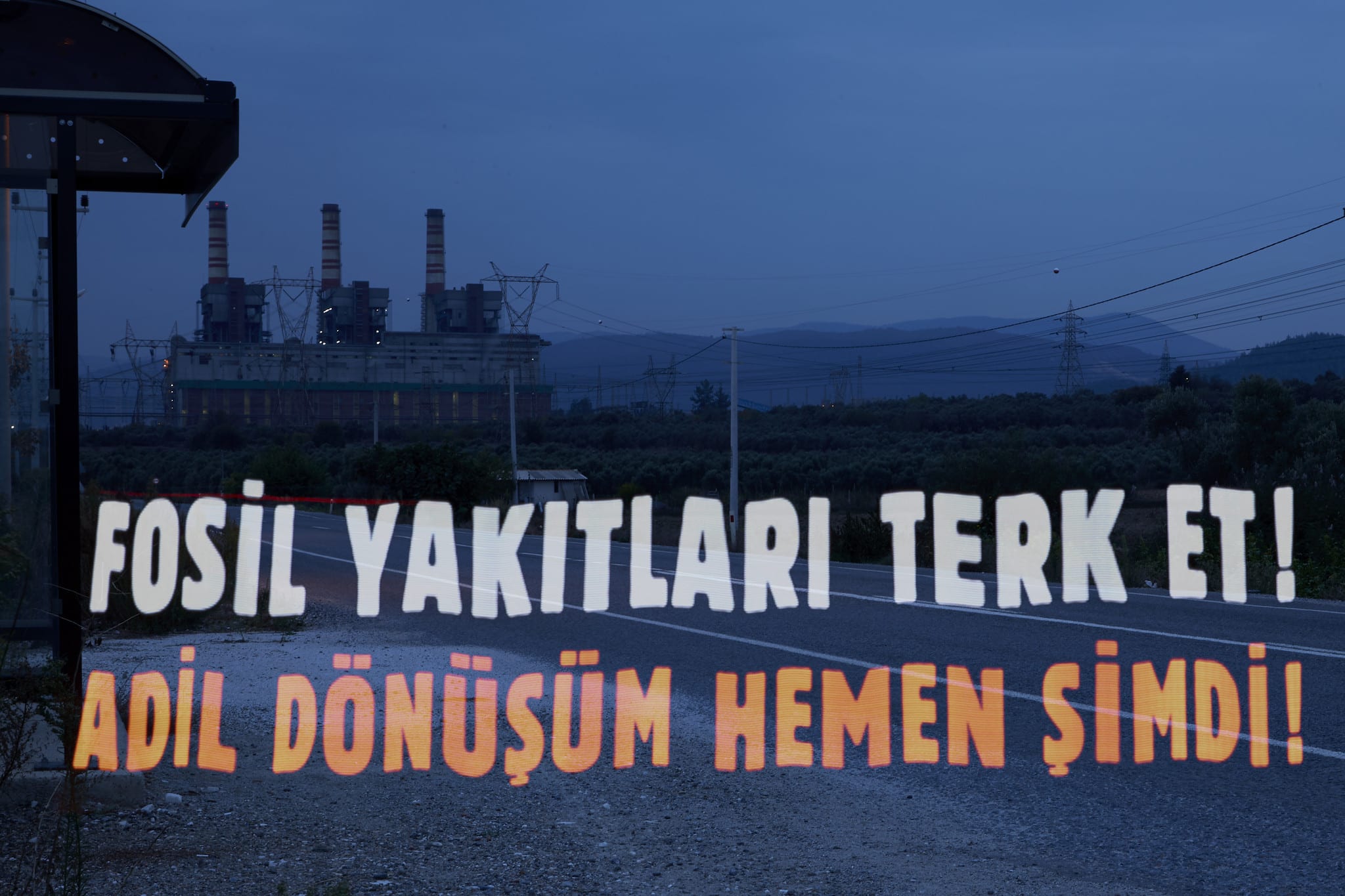
Photo: Servet Dilber | Turkey
Strengthened by the success of the Lamu campaign
350 Turkey launched a Clean Air for Adana campaign, centered on the proposed Hunutlu coal-fired thermal power station for the Iskenderun Bay, also financed by ICBC, as well as the China Development Bank and the Bank of China. Our team conducted and published extensive research proving just how dangerous this project would be for the health of already vulnerable communities, local farming and endangered sea turtles. Turkey ranks second in the world and first in Europe in terms of planned coal projects. We will continue to organize and campaign until Hunutlu goes the way of Lamu, and ICBC turns to renewable energy investments over dirty coal.
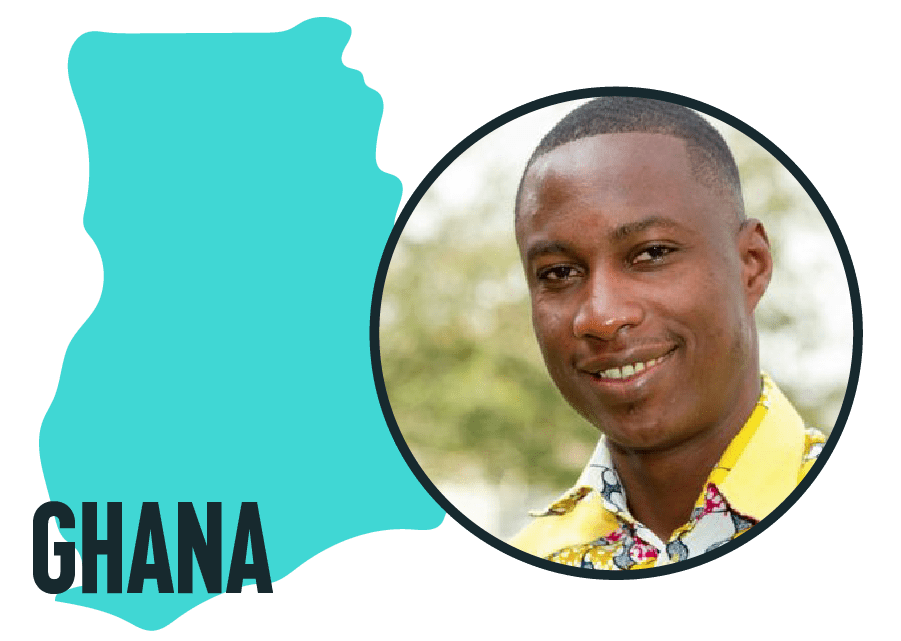
Chibeze Ezekiel
In 2013, when 350 organized the Global Power Shift, bringing 50 youth climate leaders to Istanbul, Turkey for an intensive climate leadership training, Chibeze Ezekiel was among them. Inspired and skilled-up, he returned to his homeland Ghana, to organize against a proposed coal plant. Chibeze, together with a network of partners and volunteers, secured a micro-grant of $10,000 and with further support from the 350 Africa team, won a four-year campaign battle! Chibeze went on to form Ghana-Reducing our Carbon (G-ROC) which is pushing Accra to develop and promote 100% renewable energy. Chibeze joined 350’s Board in 2020 and went on to be awarded the prestigious!
350.org also celebrated the exciting news that the Pacific Climate Warriors won the 2020 Pax Christi International Peace Prize. Established in 1988, the Prize honours contemporary individuals and organizations that stand for peace, justice and nonviolence. The Pax Christi Prize acknowledges the exemplary work of youth leaders networked across 17 Pacific nations within the Pacific Climate Warriors’ organizing framework which elevates authentic community resilience, resistance and connection through multidimensional strategies.
Stopping Funding for Fossil Fuels
Photo Highlights
Together with hundreds of global groups, we have secured divestment commitments totaling $14.56 trillion iin managed assets from 1,313 institutions and nearly 60,000 individuals. In September of 2019, we celebrated $11 trillion, representing a 32% increase in just over a year.
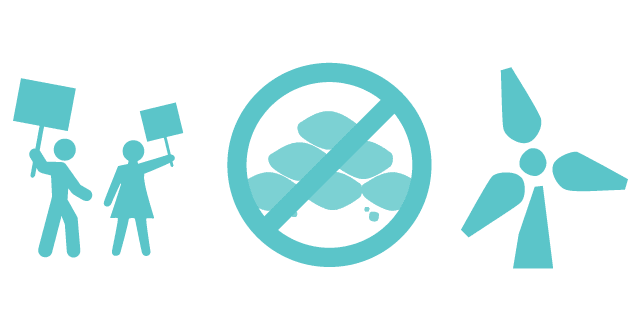
Biggest-ever joint faith divestment announcement
In May, a global coalition of 47 faith institutions from 14 nations announced that they would collectively divest from fossil fuels. This was the largest-ever joint divestment announcement. This group includes the Global Catholic Climate Movement, the World Council of Churches, Green Anglicans, Operation Noah and Catholic, Protestant and Jewish institutions from 21 nations.
In June, Pope Francis called on Catholics and the private sector to “progressively and without delay” divest from fossil fuels, as part of its first-ever operational guidance on ecology. We know that pressure from faith investors and others further exposes the weaknesses of the fossil fuel industry, adding more pressure to transition away from fossil fuels to renewable energy.
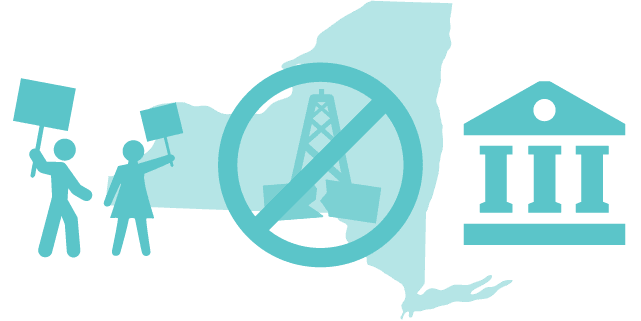
5Years of active campaigning
MULTIGENERATIONAL AND MULTIRACIAL DIVEST NY COALITION
1,100+ ACADEMICS SENT LETTER
BIGGEST DIVESTMENT ANNOUNCEMENT FROM A PENSION FUND EVER
New York State’s $226 billion pension fund divests from oil & gas
In December, we celebrated the biggest fossil fuel divestment by a pension fund in the world – ever. In 2016, 350 teamed up with the DivestNY coalition in New York knowing that if we succeeded at getting the iconic pension funds of New York to actually divest, the impact would be global. We helped build out a multi-generational, multi-racial coalition in New York State that refused to give up and organizers pulled off the first victory in 2018, when New York City announced their commitment to divest city pension funds from fossil fuels within five years.
From there, we helped stop the Williams fracked gas pipeline and secured a ban on new fossil fuel infrastructure in the city. This win sent shockwaves through the entire fossil fuel industry. Because of the pension fund’s size and reputation, the effects of this win will be felt by other funds, banks and financial institutions around the globe.
Japan’s megabanks move cautiously forward
350 Japan and partners have developed very creative organizing tactics in an effort to pressure Japan’s top three banks – Sumitomo (SMBC), Mitsubishi and Mizuho – and also the Japan Bank for International Cooperation (JBIC) – to completely divest from all fossil fuels, particularly coal. Japan is one of the world’s worst offenders when it comes to funding coal overseas, doing so in Indonesia, Vietnam, Bangladesh and elsewhere. As of the end of November we have yet to see a decisive announcement, though we see signs that the megabanks are moving closer to ending fossil fuel finance. In a related win, SMBC – one of the worst fossil fuel funders – pulled back their application to join the UN-sponsored Green Climate Fund in response to a massive online protest.

350 targets the July G20 Summit of Finance Ministers and Central Bank Governors
One of our central efforts in 2020 was tracing billions of dollars from central banks funding fossil fuel and polluting industries, rather than supporting people and communities suffering under the pandemic and recession. We planned coordinated actions around the world to draw attention to this injustice around the July 18-19 G20 Finance Minister and Central Bank Summit:
- In Bangladesh activists demonstrated in flooded areas
- Ende Gelande activists blocked the entrance to the European Central Bank in Frankfurt
- In South Africa multiple banner drops took place in several cities
- Groups in the Philippines launched a pixel stick and fairy light protest
- And in Brazil, activists projected anti-coal messaging on southern Brazil’s largest bank: “stop taking the peoples’ money to bail out climate criminals.”
350 takes aim at the first-ever Finance in Common summit
Convened by the French development agency, AFD, with the support of the United Nations Secretary General and French President Emmanuel Macron, hundreds of public development banks, Export Credit Agencies and multilateral banks gathered for the first time (making up to 10% of annual global investment), to discuss how they can jointly tackle the dual crises of COVID and climate change. 350 came together with civil society to demand an end to the financing of fossil fuel projects and for leaders to fund a just recovery instead.
We held a mobilisation webinar with partners Oil Change International, Mozambique NGO Justiça Ambiental, the Asia People’s Movement for Debt and Development and delivered a workshop for Fridays for the Future youth climate strikers leading to a first-of-its-kind youth declaration on ending public finance to fossil fuels. The Summit was an opportunity to build a movement to end fossil finance, and activate our base, which sparked coordinated actions and partner work from Brazil to Japan. Actions included:
- A vigil with lights in Manila shortly after another typhoon devastated the Philippines
- Letters to the Africa Development Bank signed by more than 150 partners delivered to AFDB subregional headquarters in Abuja, Dakar, Abidjan and Lome
- Action with local groups targeting the Brazilian Development Bank (BNDES) in Rio;
- An Attac and Extinction Rebellion banner outside the French Finance Ministry
- Asian youth strikers holding a climate rally calling on Asia Development Bank to stop using public money to fuel the climate crisis.
Together we mobilised through digital action targeting President Macron, video in South Africa, Japan and the Philippines, and a Twitterstorm on the day of the Summit.
